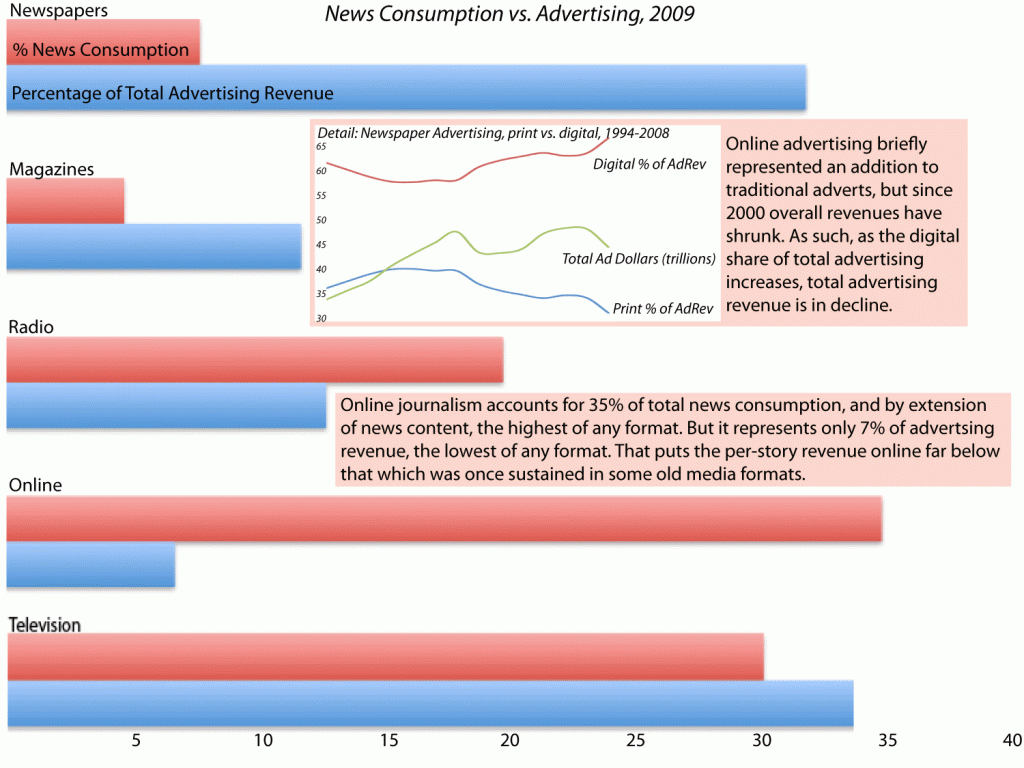In the fall of 2008, when the markets went into free fall, I was working at Forbes and getting a master’s at Columbia. While everyone suffered that year, the ‘legacy’ media had it particularly bad. Newspapers went out of business, and cubicles around mine emptied. My friends asked: why are you entering journalism now?
I answered: “Journalists, I believe, are most important at times like these, when the nature of public debate itself comes under question or into flux. Society—and journalism—will be transformed, and the only way to influence the outcome is to participate in the transformation.â€
I went on to express a great deal of optimism about the business model that would emerge after the transition, one in which old institutions would embrace the ability to dig deep into data and the opportunity to connect more personally with audiences.
But one problem remained: this new model would have to produce more journalism for a shorter news cycle at a much lower cost:
That has news organizations cutting back on the most expensive stories, namely original content and research-led reporting that goes beyond daily events. The Pew Foundation and the Newspaper Association of America report that: stories are getting shorter, down to 300 words, or the length of a summarized press release; that original reporting is being replaced by stories with one source or no sources at all, and that budgets for foreign and national news are falling.
Most strikingly, that a majority of newsroom executives do not consider business news to be a priority at all: indeed, until the financial crisis put it on page 1, business stories took up just 7% of U.S. newsprint. Meanwhile, public demand for business stories was on the rise, a top priority for nearly half of all newsreaders by 2005. This is a profound indication of market failure, a gap that nonprofits need to fill.
That is what Public Business is all about. We support original journalism that looks into the wider economic, environmental and social implications of business actions. We’re looking for extensive factual research and deep analysis and our priority is medium length work by reporters with subject-area expertise, though we will support training programs and long-form investigations too.
We’re not after breaking news, but rather enterprise work, reporters pursuing leads that have not come to their full fruition in a breaking news event. We’re not after stories about government economic policy either. We’re looking for stories about decisions made at companies and the impact they have on the economy, on the environment, on the workforce and on society. These are stories that not only change the fate of the companies they describe. These are stories that can help avert a financial crisis or an environmental disaster before it occurs; that’s reporting in the public interest.
Despite all the dire statistics above, I remain an optimist about this industry and we at Public Business remain committed to a new model that leverages the best part of the technologies around us—data and conversation—to improve reporting. That’s why in addition to helping news organizations finance public interest journalism, we would like our partners to help us back: by engaging with our members at events, by collaborating with one another, and by working with us to turn all the data that comes from our reporting into a public interest resource of its own.
